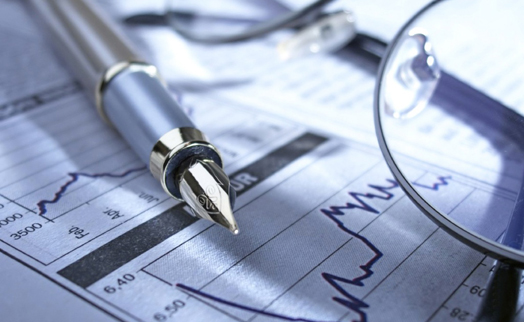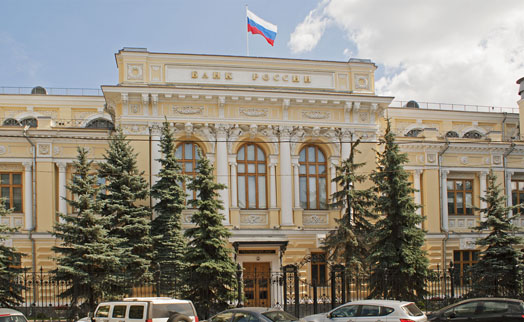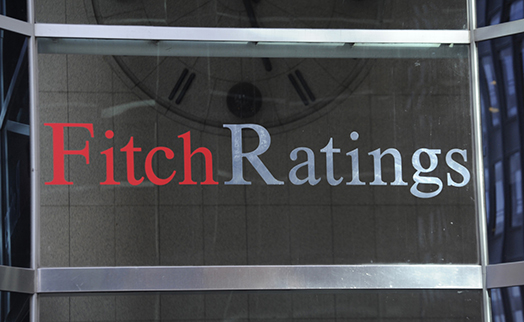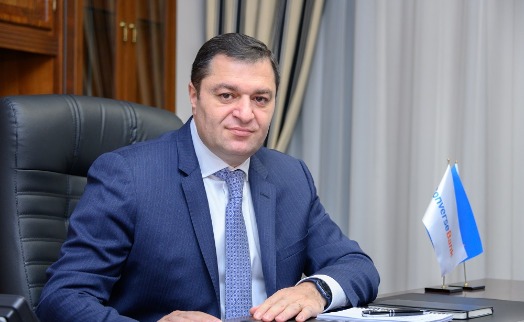07.12.2022 11:26

YEREVAN, December 7. /ARKA/. Symbiotics, a leading market access platform for impact investing, dedicated to private markets in emerging economies, has been operating in Armenia since 2008. In an exclusive interview with ARKA news agency, Symbiotics Investments Regional Manager for the Caucasus and Central Asia region, Alexandr Fando, speaks about the recently established regional office in Armenia, investments, business tools, as well as the risks and geopolitical perspectives.
ARKA - Mr. Fando, tell us about Symbiotics, its geographical presence and clients.
A.F. – Symbiotics is a group that offers investment, asset management and capacity building services. I work for Symbiotics Investments, which is a Swiss private investment firm with offices in nine countries, licensed by Swiss, English, French and Dutch regulators. Currently, we manage approximately $3 bn in assets, operating in more than 80 emerging and developed countries. We position ourselves as a socially responsible player, a platform that gives access to investors to finance economies in developing countries, foster job creation and employment, in micro, small and medium business sectors.
ARKA - What kind of a financing scheme do you use?
A.F. - We are not a bank; we are an intermediary with a know-how. On the one hand, it is attraction of resources in Western Europe, creation of investment funds - legal support for all types of clients-investors to register funds in Luxembourg. On the other hand, we perform the expert analysis of certain markets, identifying financial institutions that fit our criteria. We assess reputational and political risks, the company's business model in terms of impact on the local population, its clients and employees.
Symbiotics Investments operates in markets where there often is little detailed information available about the financial activities of local organizations. In this context, we act as a rating agency: we have our own in-house methodology for assessing credit risk and at the same time an environmental, social and corporate governance (ESG) rating. We visit the institution, prepare reports, negotiate the terms of financing and provide all the information to the managers of the funds that our colleagues have attracted.
ARKA - How and why did you come up with the idea of opening office in Armenia?
A.F. - We have been working in the region of South Caucasus and Central Asia almost since the foundation of the company in 2005: our first trips to the region happened in 2007. The first deal in Armenia was done in 2008: $1 mln. for Finca Armenia: at that time, we worked mostly with non-banking credit organizations.
Until 2021, the region was covered by our experts based in Geneva. We had offices in Latin America, Sub-Saharan Africa and South-East Asia, so the management suggested to open a branch office in Central Asia. It was more of a personal choice to open one in Armenia, even though most of the companies working in this field are rather located in Georgia, a decision that was not regretted. At present, the office counts on two people expatriated from Geneva and three local employees. We are planning to gradually grow the team.
A first important milestone for our new office was represented by the first visit of big investors from the Nordic SEB Group to Armenia and Uzbekistan in September. Later this year, Symbiotics Investments CEO, Yvan Renaud, attended the office’s first year anniversary celebration. Apart from our partners and network from the region, this event was attended by the Minister of Economy, Vahan Kerobyan, representatives of the Central Bank, the Union of Banks of Armenia, the Swiss Embassy, and investment companies from Geneva, Vienna and Tbilisi.
ARKA - What is the volume of Symbiotics' investments in Armenia compared to other countries of the region and the world?
A.F. - We started with $1 mln in 2008. Despite a rather difficult period and the regional crisis in 2015-16, Armenia, like Georgia, remained attractive, and the portfolio gradually grew without any major downturn. By 2020, there were decent amounts of investment happening in the country. In total, we have ten historical partners in Armenia, at the moment we have seven active partners. The year 2021 marked a record – as we provided another $63 mln only in Armenia. As a result, we now have a loan portfolio of about $120 mln, the highest volume since the past 15 years, and Armenia appears among Symbiotics top five countries by credit exposure worldwide.
Our firm is the largest private investor in the financial sector - both in Armenia and other countries of the region. In Armenia alone, since 2008, we have provided around $300 mln to our partners. Our distinctive feature is that starting from 2011, we also provide loans in local currency. Without hedging, our funds take the currency risk. Being socially responsible players our clients decided not to transfer the currency risk to local partners, and consequently the final borrowers. Now, around half of the $120 mln active portfolio in Armenia are being provided in dram.
ARKA – How much is the company's total portfolio in the region?
A.F. - If we consider the entire region, the Yerevan office oversees a portfolio close to $450 mln, i.e. six countries of the region account for over 15% of our global activity. This represents a significant accomplishment for us. Our clients here are represented by major banks and long-standing socially responsible lending institutions.
ARKA – How much of funds do you plan to attract to Armenia by the end of the year?
A.F. - This year we have not had much new investment – USD $8.5 mln only. We issue long-term credits, which are repaid gradually. At the moment, we are discussing several interesting new deals. As a rule, several transactions materialize in the fourth quarter. Discussions are underway with current partners, who are seeking additional funds.
ARKA - What are the average terms for crediting banks?
A.F. - Since we are a socially responsible investor, we try to minimize the cost of resources. This year, rates have grown due to global uncertainties, and it is more difficult to come to terms with local financial institutions. AMD resources have been provided at a low double-digit percentage for 3 years in average. There were also exclusive cases when we provided funds for more than 10 years. This year there have been very few deals in US dollars, roughly twice cheaper than in Armenian drams. However, now our funds would not agree to finance at this rate, because the U.S. Federal Reserve has tightened its monetary policy and raised rates. In fact, the US dollar is not of much interest to our partners here now, because the cost of hard currency available on the local market is lower than the rate at which foreign investors are willing to provide funds.
ARKA - Which instruments of impact investing are the most effective and popular in the Armenian market?
A.F. - Bonds are the most attractive for local players, also considering there is no income tax on them. Depositors in Armenia are mobile, they react very actively to the changes in the deposit rates offered by banks. Foreign investors have their own instruments to provide resources - either direct loan agreements, or bonds issued by us, including green bonds, or hybrid bonds: social and green.
As an example, last year we provided Araratbank with $14.5 mln from a sustainability bond issue. This was a particular case as Proparco, the financial arm of the French Development Agency, invested in this deal. Symbiotics Investments has its own dedicated bond platform in London. The company works with the Luxembourg Stock Exchange, where we can place green and social bonds for our partners. This is also our added value: development banks do something similar, but many private investors do not.
ARKA - What are the pros and cons of doing business in Armenia for foreign companies?
A.F. We opened the office in Yerevan in October 2021, my colleague, an expert on Armenian market, joined us in December 2021. It was rather easy to register a subsidiary of a foreign company here. I would like to point at the excellent quality of support offered by local service providers: lawyers, accountants, banks. The main difficulty for foreign companies when moving to Armenia is the fact that the whole document flow must be redacted in Armenian. This complicates the work, as specialists must properly handle documents.
Another obstacle is that our partners in Armenia must pay income tax on interest received by investors registered in Luxembourg. This leads to an increase in the cost of funds for financial institutions and consequently for households and businesses. To note, not only Symbiotics Asset Management funds are domiciled in Luxembourg, this country has been a major hub for registration of investment funds. For instance, Georgia and Uzbekistan have already introduced a zero rate on income received by Luxembourg investors.
ARKA - Isn't Armenia’s poorly developed securities market a barrier, and in general, what is your assessment of it?
A.F. – Symbiotics Investments and other foreign investors have long been present in this market, because as it is the case in many other post-Soviet countries, of the good level of corporate and prudential management of financial organizations. Framework of operations for the financial institutions is transparent and clear, and regulators work predictably and openly, making it comfortable for foreign investors. The securities market as such exists, although it is not active enough and represents a small obstacle for companies like Symbiotics Investments.
In our opinion, it could be beneficial to improve the instrument of deposit certificates and exempt them from taxes. This move would allow to mobilize more resources in the domestic market, popularize the savings culture, encourage investments for local companies, and perhaps attract more resources to the financial sector. Unlike deposits, certificates of deposit can be issued for any term starting from a week. One could say that this is a more flexible tool for raising funds compared to the standard deposit product.
ARKA - Do you see any other instruments, which could stimulate the securities market, including based on the examples of other countries?
A.F. - As an initiative of the Central Bank there has been a trend for dedollarization of the financial sector since long time, and comprehensive norms have been developed for this purpose. A major investment bank has entered into a swap agreement with a leading pension fund management company to provide more resources in Armenian drams. We are also working in this direction, trying to understand if it is possible to use the potential of pension funds, which attracts all their assets in AMD. Foreign investors could provide more resources in the local currency, but this is a relatively small volume.
The current challenge is the dram being too strong. No one could have expected such positive consequences for the country and its economy. However, the forecasts of major analytical agencies regarding the future exchange rate are very much at odds with what is happening in Armenia’s interbank market. For this reason, it is difficult to agree on the rates expected by local players, which are being formed based on real currency scenarios.
ARKA - And how different are they?
A.F. - The key rate here is 10.5%. Banks attract deposits in drams at maximum 10-11%, while devaluation expectations abroad are about 15-17%. So, if a Luxembourg-based investor wants to earn let’s say 7% a year, they have to provide resources in AMD at least at 22% per year. And on top of this, local banks would have to pay 10% withholding tax on this theoretical rate.
ARKA - What is the real value of Armenian dram voiced by currency analysts today?
A.F. - There are expectations concerning the future rate. If you put a devaluation for 1-2 years in a hedge, it is worth 17%: these are new inputs. Similar statements have been made by both the Ministry of Finance and the Central Bank. The large influx of foreigners to Armenia turns out to have contributed to a substantial strengthening of the dram, while inflation has not increased that much. Mostly, the cost of real estate rents went up. However, in other areas we do not feel a serious increase in prices.
ARKA - In general, how could you assess the prospects for the financial sector in the context of the relocation of foreign specialists to Armenia?
A.F. - The whole point is that this is a huge mass of people who moved from Russia and Belarus. They arrived with rubles, dollars, pounds and buy local services and goods for drams. They create additional demand for the Armenian currency. We can see that this demand has been going on for a very long time.
This allows us to reassure investors about the frightening forecasts. For example, the World Bank published a downright shocking scenario in March, because it was all about remittances. In the end, we saw that the situation turned out to be quite different, because along with foreigners who relocated to Armenia bringing decent amounts of capital, there are also Armenian entrepreneurs who expatriated their capital and business from Russia.
In addition, the development of the country's economy is indirectly affected by the fact that a large number of Russians and Belarusians came to Armenia and neighboring countries, got bank cards and transferred money to their accounts in the country. This does not directly contribute to the development of the real sector of the economy, although it allows the banks to make more profits.
ARKA – What is your opinion about geopolitical challenges?
A.F. - We raised this question while considering the concept of the regional office. The idea about going to Yerevan was born at the end of 2019. The pandemic and strict lockdowns in Europe, together with the war in Karabakh, put the project on hold. Nevertheless, by the end of 2020 we saw that the situation had stabilized and we could move forward.
I am cautiously optimistic about the geopolitical situation. I believe that normalization of relations between the countries in the region can unlock the logistical potential of the South Caucasus, and contribute to a significant increase in the volume of intra-regional transit and trade.
ARKA - Do you have plans for next year?
A.F. - We are here, with our Armenian partners, with our partners in the region. Our goal is to conduct quality monitoring, provide expert assessment of the situation, maintain quality relations with our clients to foster sustainable development in the Caucasus and Central Asia. -0-
Read the news first and discuss them in our Telegram
Tags:






















